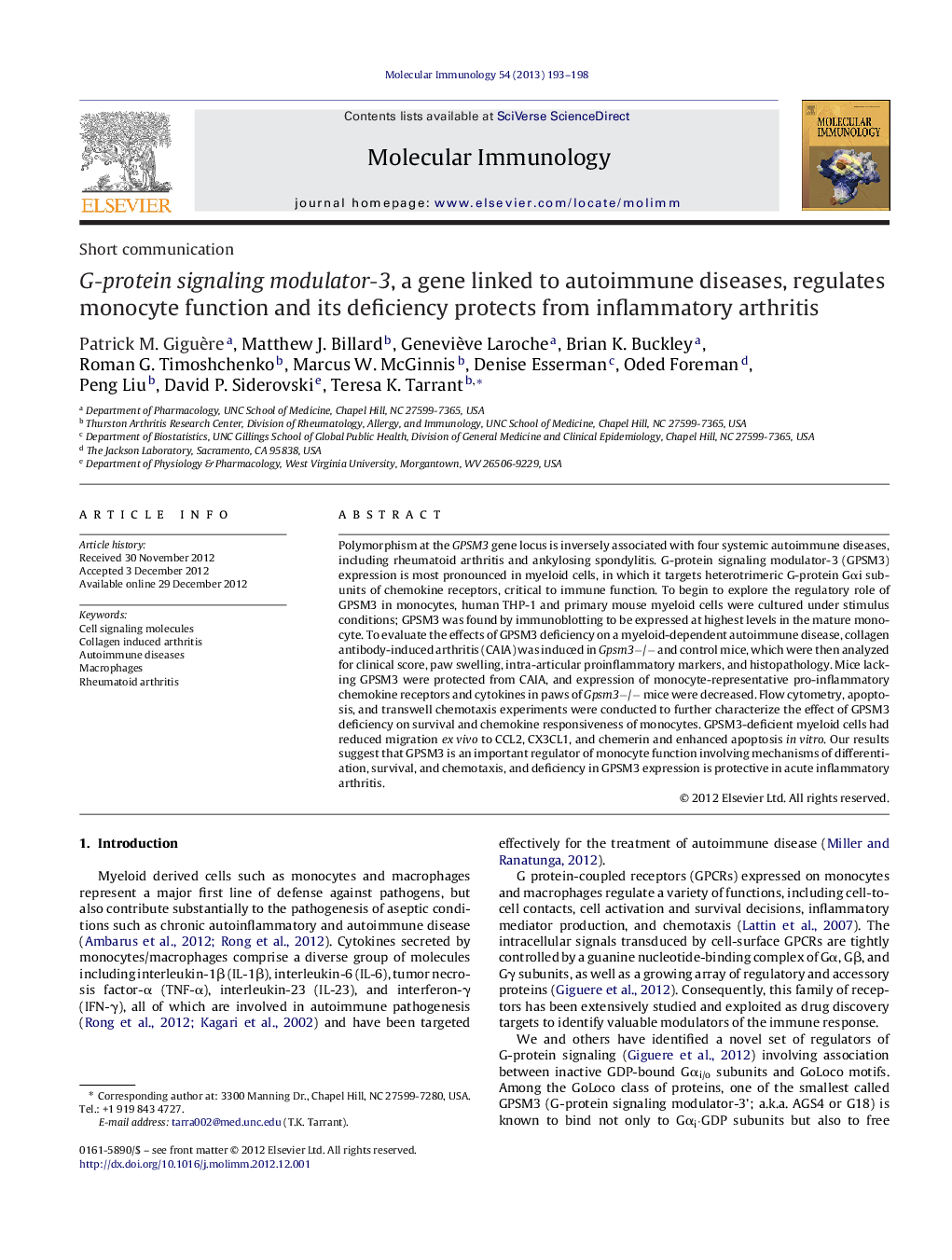| کد مقاله | کد نشریه | سال انتشار | مقاله انگلیسی | نسخه تمام متن |
|---|---|---|---|---|
| 2831166 | 1163782 | 2013 | 6 صفحه PDF | دانلود رایگان |

Polymorphism at the GPSM3 gene locus is inversely associated with four systemic autoimmune diseases, including rheumatoid arthritis and ankylosing spondylitis. G-protein signaling modulator-3 (GPSM3) expression is most pronounced in myeloid cells, in which it targets heterotrimeric G-protein Gαi subunits of chemokine receptors, critical to immune function. To begin to explore the regulatory role of GPSM3 in monocytes, human THP-1 and primary mouse myeloid cells were cultured under stimulus conditions; GPSM3 was found by immunoblotting to be expressed at highest levels in the mature monocyte. To evaluate the effects of GPSM3 deficiency on a myeloid-dependent autoimmune disease, collagen antibody-induced arthritis (CAIA) was induced in Gpsm3−/− and control mice, which were then analyzed for clinical score, paw swelling, intra-articular proinflammatory markers, and histopathology. Mice lacking GPSM3 were protected from CAIA, and expression of monocyte-representative pro-inflammatory chemokine receptors and cytokines in paws of Gpsm3−/− mice were decreased. Flow cytometry, apoptosis, and transwell chemotaxis experiments were conducted to further characterize the effect of GPSM3 deficiency on survival and chemokine responsiveness of monocytes. GPSM3-deficient myeloid cells had reduced migration ex vivo to CCL2, CX3CL1, and chemerin and enhanced apoptosis in vitro. Our results suggest that GPSM3 is an important regulator of monocyte function involving mechanisms of differentiation, survival, and chemotaxis, and deficiency in GPSM3 expression is protective in acute inflammatory arthritis.
► GPSM3 is highly expressed in mature monocytes.
► GPSM3-deficient monocytes have decreased chemotaxis to CCL2, CX3CL1, and chemerin.
► GPSM3-deficient THP-1 cells have enhanced apoptosis.
► Gpsm3−/− mice have decreased arthritis in the collagen antibody induced arthritis (CAIA) model.
Journal: Molecular Immunology - Volume 54, Issue 2, June 2013, Pages 193–198